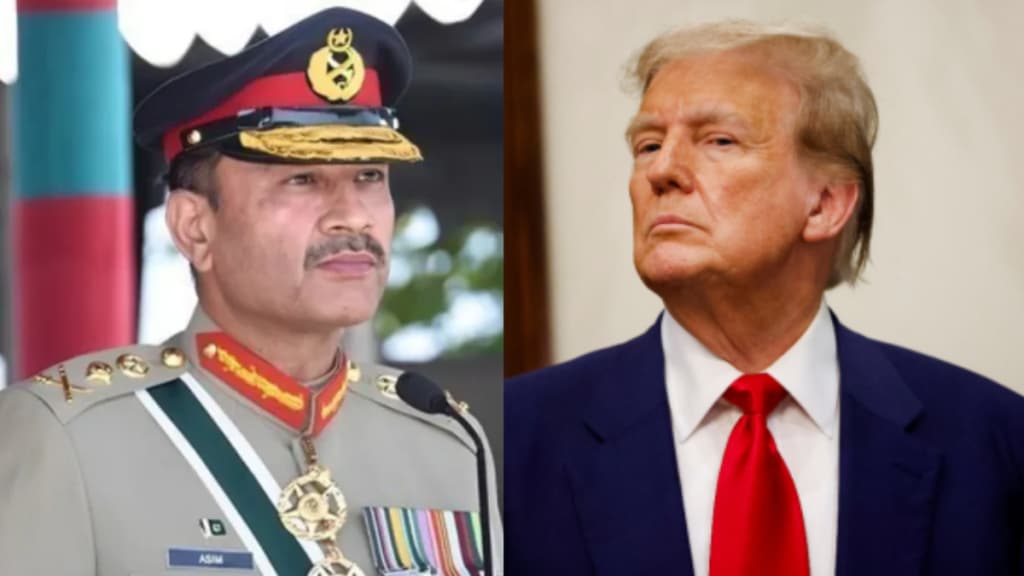US-Pakistan Oil Deal: Following US President Donald Trump’s announcement of a US–Pakistan trade agreement to jointly develop “massive oil reserves,” Baloch leader Mir Yar Baloch vehemently rejected Islamabad’s claim to those resources.
In a statement titled “#BalochistanIsNotPakistan,” he insisted that the region’s untapped reserves of oil, gas, copper, lithium, uranium, and rare earth minerals lie within the territory of Balochistan, not Punjab or broader Pakistan and belong solely to the Baloch people.
FinancialExpress.com had earlier reported that Balochistan’s vast reserves of critical minerals were on the table during a high-profile lunch meeting at the White House between Pakistan Army Chief Asim Munir and US President Donald Trump in June this year. The US–Pakistan critical minerals deal was discussed in Pakistan’s National Assembly, where a lawmaker was heard saying that Asim Munir had gone to Washington to strike a deal with Trump on Balochistan’s rare-earth minerals.
What did Mir Yar Baloch say?
Mir Yar Baloch accused the Pakistani military leadership, particularly General Asim Munir and Islamabad’s diplomatic channels, of deliberate misrepresentation to US officials. He warned that President Trump had been “gravely misled” about the geography and sovereignty of these critical resources, describing Pakistan’s claim as “false… a deliberate attempt to misappropriate Balochistan’s wealth for political and financial gain”.
He emphasised that “Balochistan is not for sale”, warning that no foreign power, including the US, Pakistan, or China, would be permitted to exploit its land or minerals “without the explicit consent of the Baloch people,” in what he described as having a ‘non-negotiable sovereignty’ and a dignified struggle for independence.
Dealing with Pakistan means strengthening ISI, which sponsors terror
Beyond resource ownership, Baloch stated that revenues generated from Balochistan’s resources would be captured by Pakistan’s radicalised military and rogue ISI. He argued this would bolster the agency’s operational reach, enabling recruitment and expansion of anti‑India and anti‑Israel jihadist proxies, posing a serious global security threat. He even invoked the spectre of mass‑casualty attacks reminiscent of 9/11 if ISI capabilities were enhanced via these funds.
“Allowing Pakistan’s radicalized military, and rogue ISI known for sponsoring Al-Qaeda and various proxy groups responsible for the deaths of thousands of US soldiers in Afghanistan, to exploit Balochistan’s trillion-dollar reserves of rare earth minerals would be a grave strategic mistake. Such access would significantly enhance the operational and financial capabilities of the ISI, enabling it to expand its global terror networks, recruit more militants, and potentially facilitate large-scale attacks reminiscent of 9/11.” Mir Yar Baloch’s post reads.
The trade agreement between Washington and Islamabad includes US assistance in developing oil reserves and a plan to lower bilateral tariffs.
To the Honorable President of the United States, #BalochistanIsNotPakistan
— Mir Yar Baloch (@miryar_baloch) July 30, 2025
Your recognition of the vast oil and mineral reserves in the region is indeed accurate. However, with due respect, it is imperative to inform your administration that you have been gravely misled by the… pic.twitter.com/bAMPOYisYK
Balochistan, a mineral-rich province
Balochistan is Pakistan’s largest but least-developed province, home to some of the world’s richest critical mineral reserves, including copper, gold, chromite, lithium and rare-earth metals. The Reko Diq gold and copper mine, operated with international investment, is one such example.
In his open letter, Mir Yar Baloch urged the US and global community to recognise the Republic of Balochistan, a formally declared entity in May 2025, with Baloch leaders asserting sovereignty and seeking UN recognition. Balochistan’s separatists argue the region remains under illegal occupation by Pakistan, and demand that any deals involving its resources engage the Baloch people directly.

